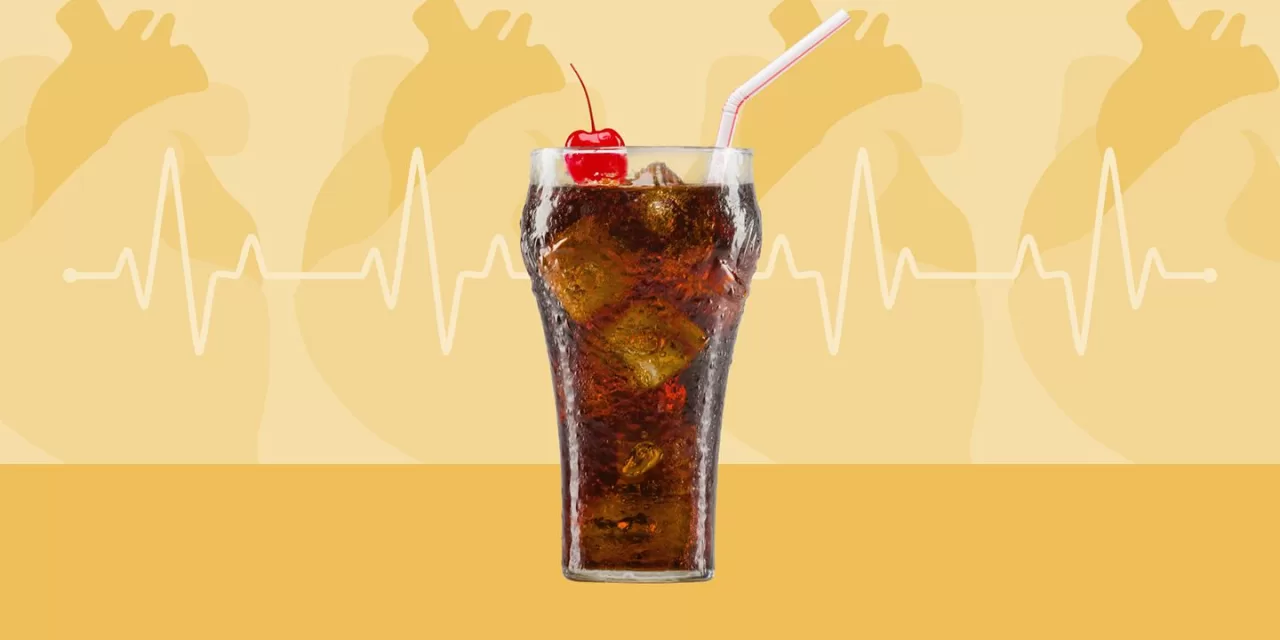If you have a sweet tooth, you might want to reconsider the sources of sugar in your diet. A new study suggests that not all sugars carry the same risks for heart health, with sodas and sugary drinks posing a significantly higher risk for cardiovascular disease than occasional indulgences in sweet treats like pastries or candy.
The study, published in Frontiers in Public Health, examined the diets of nearly 70,000 adults in Sweden. Participants, who completed dietary questionnaires in 1997 and 2009, reported their sugar intake from three sources: sodas and sugary drinks, toppings like honey or jam, and sweet treats such as pastries, candy, or ice cream. Researchers also tracked how many individuals developed cardiovascular diseases over more than two decades.
At the start of the study, participants were nearly 60 years old on average, with a mean body mass index (BMI) of 25.3, indicating they were slightly overweight. On average, participants consumed about 9.1% of their calories from added sugars. By the end of the study, almost 26,000 individuals had been diagnosed with cardiovascular disease.
The Dangers of Sugary Drinks
The findings revealed that higher calorie intake from sodas and sweetened beverages was strongly linked to an increased risk of conditions like stroke, heart failure, aneurysms, and atrial fibrillation. According to experts, this could be due to the way sugary drinks raise blood sugar and insulin levels, leading to internal inflammation—a key factor in the development of many chronic diseases.
Samantha Heller, a registered dietitian, explained, “The increased blood sugar and insulin levels lead to internal inflammation, which is the cornerstone to many diseases.” She also suggested that sugary beverages might displace healthier food choices that could reduce inflammation and offer essential nutrients.
Why Occasional Treats May Be Better Than Complete Abstinence
Interestingly, the study found that occasional indulgence in sweet treats like pastries or chocolate was associated with a lower risk of heart disease compared to those who avoided sweets entirely.
Lead author Suzanne Janzi, a PhD candidate at Lund University, noted that people who consumed very little sugar might have restrictive diets or underlying health conditions, which could explain their increased heart disease risk. Furthermore, moderation in sugar intake might be more sustainable for most people than completely cutting it out.
Maya Adam, MD, PhD, a clinical associate professor at Stanford University, supported this idea, saying, “When we eliminate things we love from our diet, that’s often a hard change to maintain in the long run. We end up ping-ponging between periods of total abstinence and periods of overindulgence, which is not healthy.”
Healthier Alternatives to Sugary Drinks
Although the study did not establish a direct cause-and-effect relationship between sugary beverages and heart disease, experts agree on the importance of reducing sugary drink consumption. Brooke Aggarwal, EdD, an assistant professor at Columbia University Irving Medical Center, recommended swapping sugary drinks for water infused with fruit, or for alternatives like tea, coffee, or milk. Homemade smoothies, which provide natural sweetness and additional nutrients, are another great option.
For those who still crave the fizz of soda, sparkling water with fresh fruit slices or mint can mimic the flavor without the added sugars. Heller suggests starting with a mix of fresh fruit juice and sparkling water as an easier transition.
Ultimately, experts emphasize that sustainable dietary changes are key to long-term health. As Heller puts it, “At the end of the day, dietary change is only healthy if we can sustain it over time. That’s why moderation is key!”











